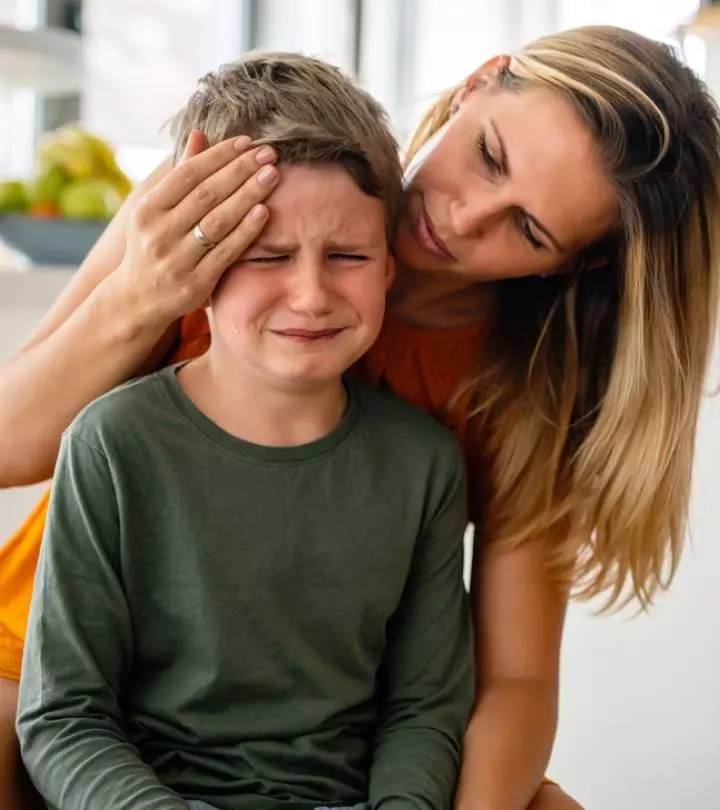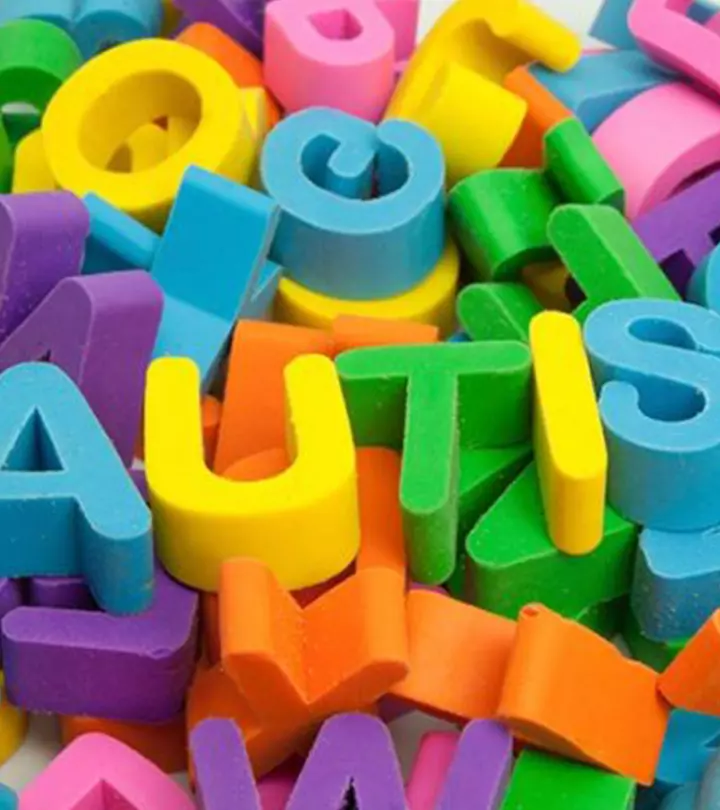

Image: Shutterstock
Crying is a powerful tool of communication, particularly in children and newborns. When a child cries, it could be that they are emotionally, mentally, or physically hurt. It breaks our heart to see our little bundle of joy in tears. Most of the time, we try to calm or soothe them. At other times, such as when tantrums are accompanied by crying, we tend to shout at them. Whatever be the case, one of the most common reactions that most of us are guilty of is flat out asking our children to “stop crying”.
Although we say so with the best intentions in mind, yelling at them or asking them to hold back their tears is not the best way to deal with a crying child. It does not help their case — instead, here’s what you can tell a child who is in tears:
1. “It’s Okay To Be Sad”
Sadness, guilt, and fear can be powerful emotions, particularly for a child. It may also make them uncomfortable and in distress, leading to a crying bout. While distressing, all these emotions are part and parcel of life, and it is normal for us to feel this way at some point. Let your child know that the feeling of sadness may be overwhelming, but it is okay to feel that way. Tell them that there is no pressure to suppress or get over what they are feeling and that it is best to feel these emotions fully and accept them.
2. “I’ve Got Your Back”
In moments of distress, it is not uncommon for a child (or even adults for that matter) to feel alone and helpless. No matter how big or small the problem they are facing, a child will feel the burden of the entire world on their shoulders. They may not be ready to reach out to you, and the chances are that they might want to keep to themselves. Despite this, put it out there that you have their back if they need you. Let them know that you are their safety net and help them navigate their hardships.
3. “Do You Need A Hug?”
Sometimes, words won’t cut it; and at these times, a hug can make all the difference. When a person is upset, it is normal for people to hug them to feel better. This immediate inclination to offer someone a hug is not just an act of kindness. It has scientific backup to prove that it can positively impact people. When hugging someone, feel-good hormones or serotonin is released. These hormones can help you feel relaxed and calm. So, ask your child if they need a hug when they are low, and it can help lift their spirits! (1).
4. “This Too Shall Pass”
People say that nothing lasts forever — this is true for both joy and sadness. Tell your child that their troubles will not last forever, and things will get better as time passes. Help them understand that no matter how big or small their problem, they have the strength to overcome it and feel good again. Remind them that they will see happier days, and all hope is not lost.
5. “Do You Want To Do Something To Feel Better?”
It’s good to come to terms with your feelings, even when sad. Running away from your emotions can do more harm than good. However, once you have accepted your feelings, it is not good to dwell on them or obsess over what happened. You can help your child shift their focus by suggesting that they do something to help them feel better. You can suggest a good movie to watch, head to the mall, or buy them their favorite ice cream.
6. “Let Me Tell You About My Experience”
Parents shy away from discussing their past experiences with their children, mainly if it includes a sad or tragic story. However, letting your child know that you, too, had similar experiences will give them a sense of hope. They will see that you went through what they did but are okay now. They will also understand what you did in that situation and learn from your mistakes or experiences. Most importantly, sharing your feelings and experiences with them will help build a bond of trust.
It’s easy for us to ask a child to stop crying, but it is also unreasonable and rude. Instead of downright telling your child to stop crying, the statements mentioned above can be a lot more reassuring, kind, and powerful. Try them and watch how much of a difference it can make! What are your thoughts on this? Do you have more to add? Let us know in the comments below!
Community Experiences
Join the conversation and become a part of our nurturing community! Share your stories, experiences, and insights to connect with fellow parents.












